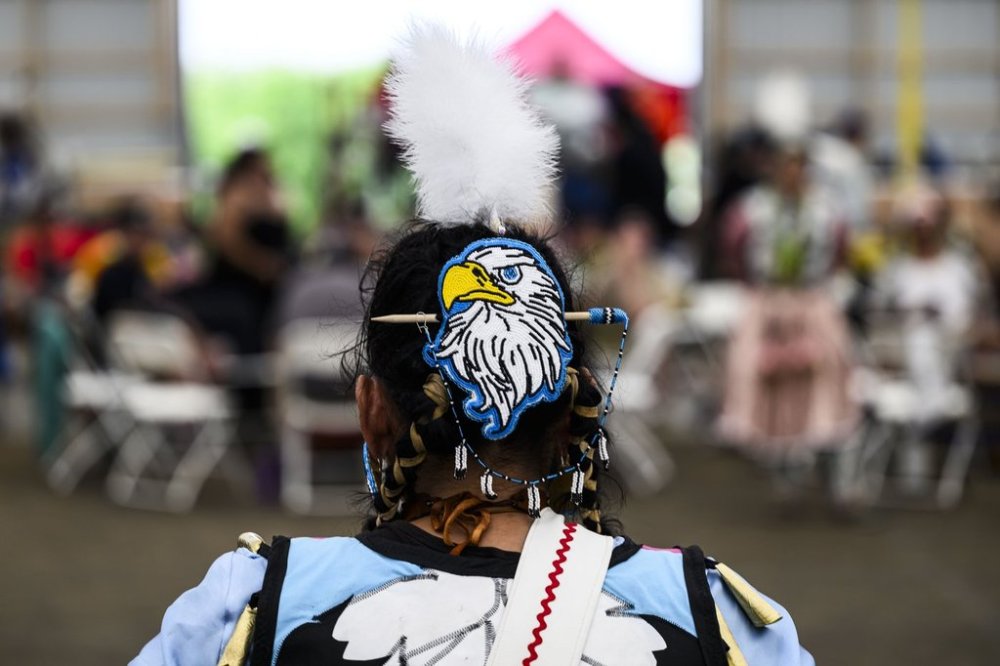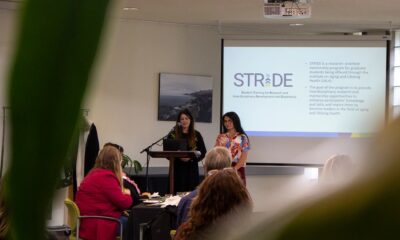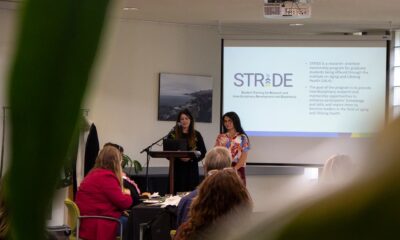Science
Majority of Canadians Report Progress on Indigenous Reconciliation

A recent poll conducted by Leger reveals that a majority of Canadians, specifically 55 percent, believe the nation is making good progress in its efforts towards reconciliation with Indigenous Peoples. This survey, commissioned by the Association for Canadian Studies and carried out between June 20 and 22, 2025, surveyed 1,580 respondents and highlights generational differences in perceptions of reconciliation.
According to Jack Jedwab, president and CEO of the Association for Canadian Studies, the poll provides insight into public sentiment on reconciliation, emphasizing that perceptions of progress can significantly influence how Canadians view their country. “The extent to which people feel progress on reconciliation is being made or not has an important bearing on how they feel about the country,” Jedwab noted.
While the survey indicates a generally positive outlook, responses varied considerably among age groups. Among younger Canadians aged 18 to 24, only 40 percent reported a belief in progress, whereas this figure rose to 67 percent among those aged 65 and older. Jedwab expressed surprise at the overall optimism, acknowledging the numerous unresolved issues that still exist within the Crown-Indigenous relationship.
The poll also delved into the level of trust Canadians have towards each other. A significant majority of respondents indicated they trust fellow Canadians, with 77 percent of younger respondents expressing high levels of trust, compared to just 52 percent among those aged 35 to 44. Notably, approximately 60 percent of non-Indigenous respondents reported trust in Indigenous Peoples, with levels of trust highest in Nova Scotia (71 percent) and Ontario (64.3 percent), but notably lower in Saskatchewan (38.3 percent) and Manitoba (44.8 percent).
Jedwab also pointed out that pride in Canada’s history appears closely linked to perceptions of reconciliation. Among those who expressed pride in the nation’s history, 68 percent believed Canada is making good progress. In contrast, only 39.3 percent of those who feel less proud shared this sentiment. This trend correlates with age; just 36 percent of respondents aged 18 to 24 felt proud compared to 78 percent of those aged 65 and older.
Interestingly, the poll found that Francophone youth reported a stronger sense of pride in Canada’s history (59 percent) compared to their Anglophone counterparts (35 percent), a finding that surprised Jedwab given the ongoing separatist sentiments in the province.
While the survey does provide valuable insights, Jedwab cautioned against overgeneralizing the views of Indigenous Peoples, as only 47 respondents self-identified as Indigenous. He stressed the importance of further research to better understand Indigenous perspectives on reconciliation and the current state of relationships between Indigenous and non-Indigenous Canadians.
“The need to pursue further research in this area is critical to comprehending how Indigenous Peoples feel,” he stated. “We must pay closer attention to the diversity of views within Indigenous communities to draw more accurate conclusions about their perspectives and the overall progress of reconciliation.”
The findings of this poll reflect a significant moment, marking nearly a decade since the final report of the Truth and Reconciliation Commission was released, serving as a reminder of the ongoing journey towards fostering better relationships within Canadian society.
-

 Politics4 weeks ago
Politics4 weeks agoSecwepemc First Nation Seeks Aboriginal Title Over Kamloops Area
-

 World5 months ago
World5 months agoScientists Unearth Ancient Antarctic Ice to Unlock Climate Secrets
-

 Entertainment5 months ago
Entertainment5 months agoTrump and McCormick to Announce $70 Billion Energy Investments
-

 Science5 months ago
Science5 months agoFour Astronauts Return to Earth After International Space Station Mission
-

 Lifestyle5 months ago
Lifestyle5 months agoTransLink Launches Food Truck Program to Boost Revenue in Vancouver
-

 Technology3 months ago
Technology3 months agoApple Notes Enhances Functionality with Markdown Support in macOS 26
-

 Lifestyle3 months ago
Lifestyle3 months agoManitoba’s Burger Champion Shines Again Amid Dining Innovations
-

 Top Stories2 months ago
Top Stories2 months agoUrgent Update: Fatal Crash on Highway 99 Claims Life of Pitt Meadows Man
-

 Politics4 months ago
Politics4 months agoUkrainian Tennis Star Elina Svitolina Faces Death Threats Online
-

 Sports5 months ago
Sports5 months agoSearch Underway for Missing Hunter Amid Hokkaido Bear Emergency
-

 Politics5 months ago
Politics5 months agoCarney Engages First Nations Leaders at Development Law Summit
-

 Technology5 months ago
Technology5 months agoFrosthaven Launches Early Access on July 31, 2025





















